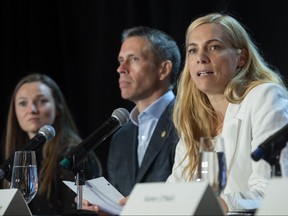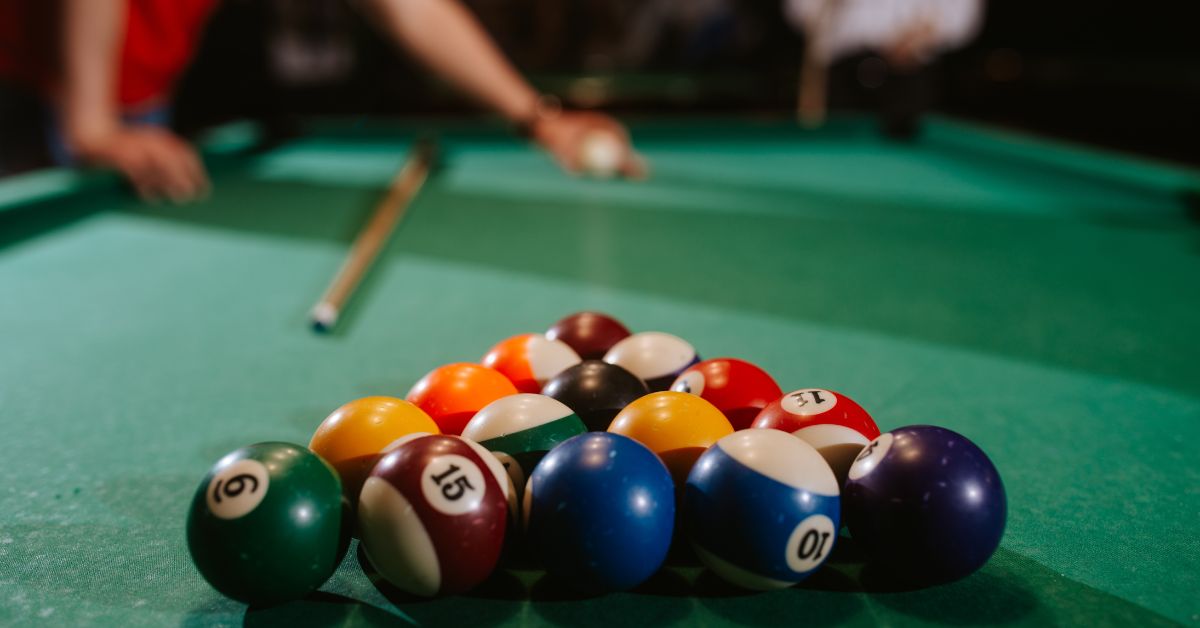Safe sport crisis prompts action from federal minister, Canadian Olympic Committee
[ad_1]

Article content
When the newly established Office of the Sport Integrity Commissioner (OSIC) starts taking calls on June 20, there ought to be a veritable flood of complaints.
Advertisement 2
Article content
After all, hundreds of gymnasts and boxers have been signatories to open letters alleging abuse and systemic toxicity — pervasive, historical and contemporary — in their sports. And those are just the most recent and overt expressions of concern, as federal sport minister Pascale St-Onge said she has also heard safe sport complaints from athletes in artistic swimming, bobsleigh and skeleton, curling, track and field, rowing, rugby and wrestling since taking office last fall.
Article content
On Sunday, St-Onge updated the government’s response to those complaints during a news conference in Montreal. She said as of April 1, 2023, all national sport organizations that receive federal funding through Sport Canada will have to adhere to new standards of governance, accountability and safe sport; that NSO adoption of the OSIC will “gradually” become mandatory; and that a Sport Canada Athlete Advisory Committee has been struck “to increase the representation of athletes in the sport system.”
Advertisement 3
Article content
The announcement was heralded by sport leaders gathered in Montreal as significant, and came on the heels of Saturday’s news that the Canadian Olympic Committee would invest $10 million in safe sport initiatives.
Are those measures enough to stave off the “crisis” in Canadian sport that St-Onge has referred to repeatedly? Probably not, given all the calls from athletes for independent investigations into toxic culture. But for now at least, there will not be a federally commissioned investigation of the high-performance sport system. For now, the OSIC is the single portal through which St-Onge wants the Canadian sport system to address historic and current-day complaints of maltreatment.
“What I would say is that these athletes can call there on June 20th and ask questions,” St-Onge said. “The office is independent. They’re going to see what’s the right process and how to deal wi
th those cases, but the independent mechanism is what has been asked (for) by the athletes and also by the NSOs so that there is an independent place where those cases can be heard. The office is going to be able to assess individual cases and also evaluate culture in sport.”
Advertisement 4
Article content
The office staff is small, funded to the tune of $16 million over the next three years, and headed by Sarah–Ève Pelletier. Staff will accept complaints but all investigations of maltreatment and evaluations of sport culture will be out-sourced. There will undoubtedly be hiccups. For starters, athletes who did not trust the previous system delivered by NSOs, one that allowed a shocking proliferation of abuse, may not immediately trust this so-called independent mechanism for reporting.
“It’s clear that trust in the system has been breached, and it must be restored,” said Rosie MacLennan, chair of the COC Athletes’ Commission. “We need to listen to athletes and keep their health and well-being at the centre of the sport system.”
Advertisement 5
Article content
What’s more, given the sheer volume of boxers, gymnasts and sliders who have come forward recently, there might be too many complaints for the office to handle with the care they demand.
AthletesCAN president Erin Willson said that is a concern expressed by many athletes. However, she was encouraged by OSIC’s focus on the bigger picture.
“I think again though one of the positives that has come out of the OSIC and the conversations that we’ve had is that they have really tried to listen to athletes to understand that a lot of this is a culture problem; it’s not a single athlete and a single perpetrator,” said Willson.
In the case of gymnastics, there are at least 83 complaints that would merit a safe sport investigation, according to Kim Shore, a co-founder of the advocacy group Gymnasts for Change Canada. She was disappointed by Sunday’s announcements.
Advertisement 6
Article content
“The mechanisms that were announced today do not address past harm. They do not address an independent investigation into any of the sports coming forward with many allegations of abuse and toxic culture. They’re asking victims of trauma and abuse and hardship to have to carry the weight of changing the system.”
Shore believes St-Onge wants to provide a safe space for athletes moving forward, but the past cannot be ignored.
“Essentially we still have more than 1,000 athletes calling for justice and resolution and reconciliation for past harm and this entire announcement was very forward focused. It needs to be forward focused to some extent, but for those bringing a legacy of abuse to the forefront, we need that to be addressed so that we will in future know what warning signs to look for when it comes to abuse emerging.”
Advertisement 7
Article content
For now, St-Onge has put resources and her faith in the OSIC.
“There is going to be a progressive implementation of that mechanism, so we’re going to have to be patient,” she said. “It’s new. It never existed in Canada. We’re building something from scratch, out of a will to make things better for athletes and to give them a safe space and also to relieve the NSOs from this charge. Because you know at first, each NSO had to build their own independent mechanism, and voices were heard that some athletes didn’t feel that was the right way to do it, so we’re creating something new.
“It’s not going to be perfect right from the beginning. It’s an ongoing process and we’re going to work hard all together to make sure that it succeeds and that it gives the services to the athletes that they expect, that they need and that they deserve.”
Advertisement 8
Article content
What high-performance athletes have always deserved is a safe, inclusive space in which they can train, compete and represent their country to the best of their ability. Boxers, gymnasts and other athletes have been saying for months now that their ability to do all that successfully and safely has
been compromised by national sport organizations that fall short on those basics, and that has Shore wondering about accountability at those NSOs.
“If we don’t have the right sport leaders, it won’t matter how great our complaint resolution system is, because the harm will have already been done. What’s missing here is prevention. The really important thing is that children and young athletes aren’t hurt in the first place.”
Twitter.com/sportsdanbarnes
[ad_2]
Source link



